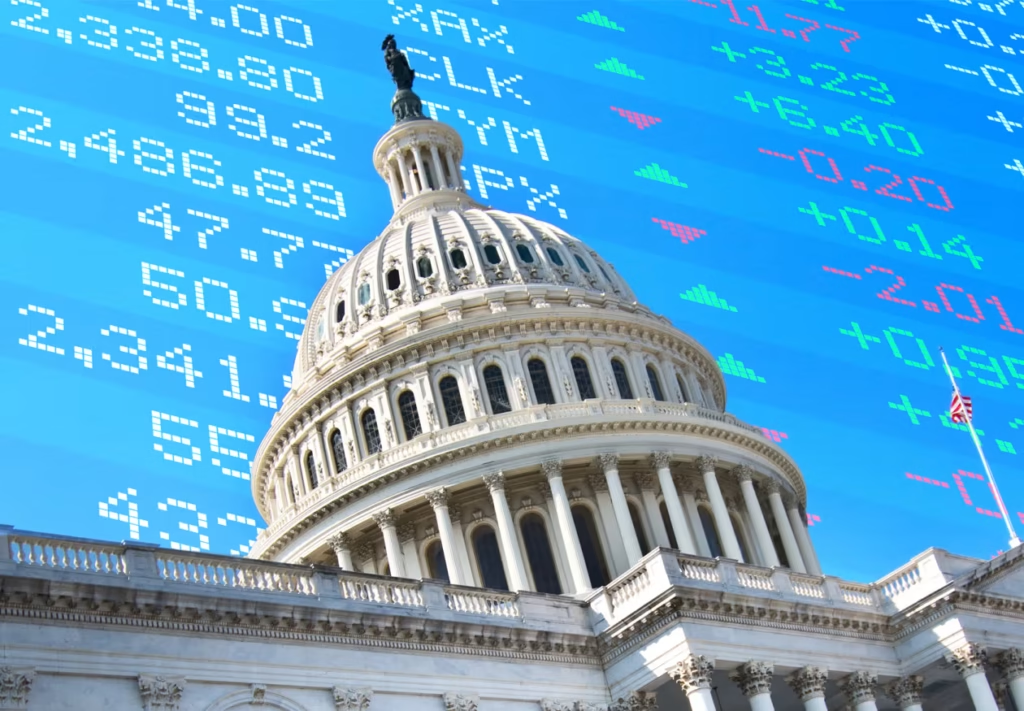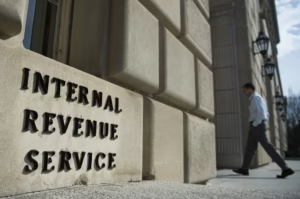According to a recent research by analysts at Wolfe Research, some trades made by U.S. lawmakers tend to have predictive potential, even if the average member of Congress isn’t a superstar trader and could be better served sticking to index funds.
According to the analysts’ research dated Tuesday, “certain conditions – like who is in power, how quickly a trade is disclosed, or how large a trade is – significantly affect whether a given transaction has predictive power,” says the team led by Yin Luo and David Elledge.
Following positive remarks from influential figures in Washington, D.C., the revelation comes as some opponents of congressional stock trading have renewed their hopes of passing legislation that would outlaw such transactions. President Donald Trump voiced support for a ban in April, while House Speaker Mike Johnson stated last month that he supports one.
As Wolfe analysts examined congressional trades dating back to the introduction of the 2012 Stop Trading on Congressional Knowledge Act, or Stock Act, they discovered that House Republicans’ stock purchases have been particularly wise when their party controlled the House, the Senate, and the White House. Although many watchdog groups claim that the law hasn’t resolved the issues surrounding congressional trading, it was intended to address concerns about possible insider trading by members of Congress.
“Republican lawmakers may have better visibility into business-friendly policy moves (tax cuts, deregulation efforts, government contracts, etc.) when they hold the presidency and Congress,” the authors wrote. “As a result, they may act on information or expectations that give them an advantage.” Given the dictatorship we currently live under, this is very pertinent today. Additionally, the Wolfe team discovered that House Republicans’ rather substantial trades in this scenario, which were around $50,000 instead of $5,000, “paid off nicely on average.”
It was discovered that while House Democrats held at least some degree of control in Washington, their stock acquisitions performed better. “One could speculate that House Democrats in those moments might have insight into legislation likely to pass the Senate or regulatory actions under a Democratic administration, thus trading accordingly,” according to the Wolfe analysts. The really large trades made by House Democrats, defined as those valued at $250,000 or more, “tended to be excellent calls.”
Senate transactions and late disclosures
The effect was “notably strong when the filer’s party was in the minority,” according to the Wolfe researchers, who also noted that late-disclosed trades by House members shown outperformance. They further stated that a deal “that a lawmaker is willing to risk a STOCK Act violation (and fine) to file late could be one worth examining closely.”
What is a late disclosure, exactly? The more than 500 members of Congress are required by the Stock Act to disclose any acquisitions or transactions of stocks or other securities by themselves or family members within 45 days, failing which they risk a $200 fine. Given the millions of dollars that may be generated in the stock market SPX DJIA, one watchdog, the Campaign Legal Center, has stated that the amount of the fee is insufficient as a deterrence.
According to Wolfe’s researchers, transactions in the Senate “tend to perform best when the opposite party holds power in at least one branch of government.” They thought that “perhaps when out of dominant power, senators trade more on genuine stock fundamentals, whereas senators in power might face greater scrutiny or have other constraints.”
Furthermore, the researchers stated that a “handful of lawmakers stand out for consistently making profitable trades,” and they contended that risk management benefits from knowing who the top performers are. “If a particularly savvy lawmaker suddenly makes a big move (say, selling all their tech stocks XLK), that could be a red flag worth investigating for fundamental reasons,” they stated.
What is the current status of the campaign to outlaw trading?
A 2022 MarketWatch article that described how Congress resembled a Wall Street trading desk in 2021, with lawmakers and their family members making an estimated $355 million in stock trades overall, is one of many media reports that have questioned Congress’s stock buying and selling practices.
For years, attempts to outlaw congressional stock trading have not gained the necessary momentum. In an attempt to reduce conflicts of interest and increase public confidence in the federal government, a variety of Democrats and Republicans have presented legislation in the House and Senate that would implement various kinds of restrictions.
The bills to outlaw congressional stock trading are opposed on the grounds that they are excessive and that existing legislation already prohibits trading on insider knowledge and requires regular disclosures. Additionally, they contend that a ban would deter eligible candidates from seeking public office and that Americans might want Congressmen to know what it’s like to invest in individual equities.
This year, Republican Sen. Josh Hawley of Missouri has introduced or reintroduced the Pelosi Act, also known as the Preventing Elected Leaders from Owning Securities and Investments Act, and Democratic Rep. Seth Magaziner of Rhode Island and Republican Rep. Chip Roy of Texas have introduced the Trust in Congress Act. Hawley’s measure is named after Democratic Representative Nancy Pelosi of California, the former speaker of the House of Representatives, who has drawn criticism for being one of the largest traders in Congress and for failing to take a vote on a ban on stock trading before to the 2022 midterm elections.
The Wolfe analysts stated in their analysis that “it is possible we are nearing an end to self-directed congressional trading,” given the controversy surrounding measures such as the PELOSI Act. “In the interim, however, markets will continue to keep an eye on every disclosed trade from Capitol Hill.”
More over two years ago, two exchange-traded funds were introduced with the goal of tracking parliamentarians’ stock purchases. One is trading under the ticker NANC NANC, and the other was trading under the ticker KRUZ before switching to GOP GOP.





